When choosing a fence for your property, strength and durability are crucial considerations.
We will explore different types of fences available, including wood, vinyl, aluminum, chain link, and wrought iron. Additionally, we will discuss the strongest types of fences like steel, concrete, brick, stone, and composite.
Find out more about the factors influencing fence strength and get tips on selecting the right fence based on your budget, security requirements, aesthetics, and maintenance preferences.
Whether you seek to boost security or add style to your property, this article will guide you in making an informed decision on the best fence choice.

What Is A Fence?
A fence is a structure that serves various purposes, such as delineating boundaries, enhancing security, providing privacy, and adding aesthetic appeal to a property. It can be made from a variety of materials like vinyl, wood, chain link, aluminum, and steel, each offering different advantages based on the intended use and weather conditions.
Vinyl fences, for instance, are known for their low maintenance and durability, making them ideal for busy homeowners looking for a long-lasting solution. On the other hand, wooden fences exude a classic charm and can be customized to match the style of any home, but they may require more upkeep to protect against rot and pests.
Chain link fences are a cost-effective option for marking boundaries and are often used in commercial settings due to their visibility and affordability. Aluminum fences offer a balance of strength and elegance, perfect for those seeking a sleek and modern look that is also sturdy.
Steel fences, prized for their strength and longevity, are commonly chosen for security purposes in both residential and industrial settings. The choice of material ultimately depends on factors such as budget, maintenance preferences, desired aesthetics, and specific needs.
Discover: How To Install Estate Fencing

What Are The Different Types Of Fences?
Regarding fences, there are several types available, including vinyl fences, wood fences, chain link fences, and aluminum fences, each with its unique characteristics and suitability for different applications.
Wood Fences
Wood fences, such as the classic wooden board-on-board, redwood, cypress, western red cedar, and pressure-treated pine fences, offer a traditional and natural look that blends well with various landscapes.
Board-on-board fences provide excellent privacy due to the overlapping panels creating a solid barrier. Redwood fences are prized for their rich color tones and resistance to decay and insects, making them a long-lasting choice. Cypress fences are known for their durability in humid climates, naturally repelling rot and insect damage. Western red cedar fences are highly sought after for their natural beauty, with a pleasant aroma and natural oils that resist decay and insect infestation. Pressure-treated pine fences offer affordability and durability and are treated to resist rot and decay, perfect for budget-conscious homeowners.

Vinyl Fences
Vinyl fences, such as the vinyl shadowbox, vinyl horizontal slat, and vinyl lattice fences, are known for their durability, low maintenance requirements, and versatility in design options.
One of the standout advantages of vinyl fences is their remarkable strength. Unlike traditional wood fences that may warp or rot over time, vinyl fences are highly resistant to damage from moisture, insects, and UV rays, ensuring they can withstand the test of time. In addition, their weather-resistant properties make them an ideal choice for various climates, from sunny to rainy regions.
The customization possibilities with vinyl fences are almost endless. With options like different colors, textures, and styles, homeowners can easily find a vinyl fence that complements their property’s aesthetics perfectly. This versatility in design allows for creativity in creating a unique and personalized look for any outdoor space, be it a modern horizontal slat fence for a contemporary vibe or a charming lattice fence for a more traditional feel.

Aluminum Fences
Aluminum fences, including ornamental steel, ornamental aluminum, and aluminum vertical louver fences, offer a perfect balance of strength, elegance, and low maintenance requirements.
One of the standout features of aluminum fences is their remarkable durability, which ensures that they can withstand various weather conditions without deteriorating over time. This durability is further enhanced by the powder-coated finish that provides protection against rust and corrosion, making them a long-lasting fencing option for both residential and commercial properties alike.
Aluminum fences come in a wide range of decorative options, allowing homeowners and business owners to choose a style that complements their property’s aesthetics. Whether you prefer a classic black picket fence or a more modern design with ornate scrolls and finials, there is an aluminum fence style to suit every taste.
Another advantage of aluminum fences is their versatility, making them suitable for different property types, including suburban homes, urban townhouses, and commercial buildings. The lightweight nature of aluminum makes it easy to install on various terrains, ensuring that your property is well-protected while enhancing its curb appeal.

Chain Link Fences
Chain link fences, whether galvanized, vinyl-coated, or slatted, are popular for their affordability, durability, and low maintenance, making them suitable for a wide range of applications.
The strength of chain link fences lies in their woven design, which provides a sturdy and secure barrier. The galvanized chain link fences are coated with a protective layer of zinc, offering exceptional rust resistance, ideal for outdoor settings.
On the other hand, vinyl-coated chain link fences add an extra layer of protection, enhancing both durability and aesthetics. They come in a variety of colors, blending seamlessly with different landscapes and architectural styles.
Slatted chain link fences offer privacy and wind protection without compromising on the open feel. These versatile fences are commonly used in residential, commercial, and industrial settings due to their adaptability.

Wrought Iron Fences
Wrought iron fences, with their classic and elegant designs, provide both security and aesthetic appeal to properties, offering a timeless and sophisticated look.
One of the standout features of wrought iron fences is their exceptional durability. These fences are renowned for their strength and ability to withstand various weather conditions, making them a long-term investment for any property owner. Additionally, the decorative elements of wrought iron fencing add a touch of charm and uniqueness to the landscape, enhancing the overall curb appeal.
The low maintenance requirements of wrought iron fences make them a practical choice for busy homeowners. Unlike wood or vinyl fencing, wrought iron fences do not require frequent painting or sealing, saving both time and money in the long run.

What Is The Strongest Type Of Fence?
Regarding strength, steel fences, concrete fences, brick fences, stone fences, and composite fences are among the strongest options available, offering durability and security for various property types.
Steel fences are known for their robustness and resistance to rust and corrosion, making them ideal for inclement weather conditions. Concrete fences, on the other hand, are valued for their solid construction and ability to withstand high winds and extreme temperatures. Brick fences exude a classic charm while providing sturdy boundaries that can last for decades.
- Stone fences boast a natural, timeless aesthetic and exceptional durability against wear and tear, suitable for adding a touch of elegance to any property.
- Composite fences combine various materials, such as wood fibers and recycled plastics, offering a blend of strength and low maintenance that is perfect for a modern, eco-friendly approach to fencing.
Steel Fences
Steel fences are renowned for their unmatched strength and durability, making them ideal for properties where security and longevity are top priorities.
One of the key advantages of steel fencing lies in its robust construction, capable of withstanding extreme external forces and impact. This makes it a highly secure option, offering peace of mind to property owners. Steel fences are highly resistant to harsh weather conditions, such as rain, snow, and UV exposure, ensuring long-lasting performance without deterioration. Their low maintenance requirements mean minimal upkeep is needed, saving both time and money in the long run. Overall, steel fences are a reliable and practical choice for enhancing the security and appearance of any property.

Concrete Fences
Concrete fences offer exceptional strength and longevity, with the ability to withstand harsh weather conditions and provide long-term security and privacy for properties.
One of the key benefits of concrete fences is their unrivaled resilience. Unlike other fencing materials, concrete fences are highly durable and can last for decades with minimal maintenance. This durability makes them a cost-effective investment in the long run, as they require less frequent repairs or replacements compared to other fencing options.
Concrete fences offer a wide range of customization options to suit any architectural style or design preference. From decorative patterns to various textures and colors, homeowners and property owners can personalize their concrete fences to enhance the aesthetic appeal of their properties.
Concrete fences are known for their resistance to weather elements such as wind, rain, and extreme temperatures. This weather-resistant nature ensures that the fence remains sturdy and visually appealing regardless of the environmental conditions, making it an ideal choice for both residential and commercial properties.

Brick Fences
Brick fences combine strength and aesthetic appeal, offering a classic and durable fencing solution that enhances the visual appeal and security of residential and commercial properties.
One of the key characteristics of brick fences is their exceptional durability. Unlike other materials, bricks are long-lasting and can withstand various weather conditions without deteriorating.
Brick fences provide a high level of design versatility. They can be built in different styles, patterns, and colors, allowing property owners to customize their fences to complement the overall architectural theme of the space.
Another advantage of brick fences is their timeless charm. Their classic appearance adds a touch of elegance to any property, creating a welcoming and sophisticated atmosphere.

Stone Fences
Stone fences are known for their natural strength and rugged beauty, providing a sturdy and long-lasting option for properties seeking a blend of security and aesthetics.
One of the standout features of stone fences lies in their remarkable ability to withstand various weather conditions, whether it’s scorching heat, heavy rain, or biting cold. Their durability surpasses many other fencing materials, ensuring a reliable barrier for years to come. The earthy appeal of stone fences adds a touch of timeless elegance to any property, seamlessly blending with the natural surroundings. The aesthetic charm that stone fences bring is unmatched, elevating the overall visual appeal of a space.

Composite Fences
Composite fences offer a unique combination of strength, versatility, and low maintenance, making them an excellent choice for modern properties looking for a durable and eco-friendly fencing solution.
One of the key advantages of composite fences is their eco-friendly attributes. These fences are often made from recycled materials, reducing the need for new resources and minimizing waste. Composite fencing materials are highly customizable, allowing homeowners to choose from a variety of colors, styles, and textures to suit their aesthetic preferences. Their long-term durability ensures that composite fences can withstand harsh weather conditions without warping, rotting, or fading, making them a cost-effective and sustainable option for property owners.

What Factors Affect The Strength Of A Fence?
The strength of a fence is influenced by various factors such as the material used, design and construction quality, and the level of maintenance it receives over time, all of which play a crucial role in determining its longevity and durability.
Regarding fence strength, the selection of materials is fundamental. Different materials offer varying levels of durability and resistance to weather conditions. For instance, metal fences are known for their strength and longevity, while wooden fences may require more extensive maintenance to retain their integrity.
The construction techniques used can significantly impact the stability of a fence. Proper installation methods, such as setting sturdy posts securely in the ground and ensuring a level foundation, are essential for a robust fence structure.
Material
The material used in a fence, whether it’s steel, wood, aluminum, concrete, or composite, significantly influences its strength, durability, and overall performance in varying weather conditions.
Steel fences, known for their robustness and longevity, offer unparalleled security and strength, making them ideal for commercial and industrial properties. On the other hand, wooden fences provide a rustic charm and natural appeal, perfect for residential settings where aesthetics play a significant role. Aluminum fences, lightweight yet sturdy, are popular for their low maintenance and versatility in design options.
Concrete fences, renowned for their durability and noise reduction properties, are frequently used in urban areas for both security and sound insulation purposes. Alternatively, composite fences combine the best of both wood and plastic, offering a durable yet environmentally friendly option that mimics the look of traditional wood without the maintenance requirements.
Design And Construction
The design and construction quality of a fence are critical factors that contribute to its strength and structural integrity, ensuring that it can withstand external pressures and environmental elements over time.
Proper structural considerations play a key role in determining the longevity of a fence. Factors like material choice, post depth, and the spacing between posts and rails impact the overall durability of the structure. Utilizing advanced installation methods such as post anchoring and secure fastening techniques can further enhance the stability of the fence.
Reinforcement strategies such as cross-bracing or using diagonal supports can significantly increase the resistance of the fence to forces like wind or impact, making it more robust in the long run.
Maintenance
Regular maintenance, including inspections, repairs, and treatments, is essential for preserving a fence’s strength and prolonging its lifespan, ensuring that it remains structurally sound and visually appealing.
Inspecting the fence regularly allows you to identify any issues at an early stage, such as loose boards, rusting nails, or signs of rot. Addressing these problems promptly can prevent further damage and extend the overall life of the fence. Repair methods vary depending on the material used, with options like replacing damaged sections, tightening screws, or reinforcing weak spots.
Applying protective treatments, such as sealants or stains, can shield the fence from harsh weather conditions, UV rays, and insect infestations, helping to maintain its appearance and structural integrity over time.
How To Choose The Right Fence For Your Needs?
Selecting the right fence involves considerations such as budget constraints, security requirements, aesthetic preferences, and maintenance demands, all of which play a crucial role in determining the most suitable fencing solution for your property.
Regarding budget constraints, you may want to explore cost-effective options like chain-link fences or wooden picket fences. For enhanced security, sturdy materials like steel or iron fences with added security features such as spikes or electronic gates could be ideal.
Aesthetic preferences often guide homeowners towards ornamental fences like wrought iron or charming wooden fences that complement the overall style of the property.
Consider the maintenance demands of different types of fences; for low upkeep requirements, vinyl or composite materials might be preferred over traditional wood that requires regular staining and sealing.
Consider Your Budget
When selecting a fence, it’s essential to consider your budget constraints and choose a fencing option that not only meets your needs but also aligns with your financial resources to ensure a cost-effective solution.
Proper budget planning in fence selection plays a crucial role in maximizing the value of your investment. By carefully assessing the costs associated with different types of fences, you can make informed decisions that suit your financial situation.
Researching the various materials, styles, and installation expenses can help you find a balance between quality and affordability. Looking into financing options such as loans or payment plans can make it feasible to opt for higher-end fences without straining your budget. It’s important to view fence installation as a long-term investment, considering factors like maintenance costs and durability to ensure that your chosen fence remains a functional and aesthetically pleasing addition to your property for years to come.
Evaluate Your Security Needs
Assessing your security requirements is crucial when deciding on a fence type, as it helps determine the level of protection and privacy necessary for your property, ensuring that the chosen fencing solution meets your security expectations.
When evaluating the security needs of your property, it’s essential to consider various factors such as privacy concerns, and access control requirements, and implement perimeter security enhancements.
Privacy considerations play a significant role in determining the level of seclusion you desire for your space, whether it’s for a residential, commercial, or industrial property.
Access control requirements involve assessing who is authorized to enter your property and implementing measures to control and monitor access effectively.
In addition, enhancing perimeter security with features like security cameras, motion sensors, or barbed wire fences can further fortify the protection of your premises, deterring potential intruders and enhancing overall security.
Think About Aesthetics
Considering the visual appeal of a fence is essential in enhancing the overall look of a property and creating a harmonious outdoor space that complements the architecture and landscaping, making aesthetics an integral aspect of fence selection.
Regarding designing a fence, the style plays a crucial role in determining its visual impact. Different styles such as picket, lattice, or modern panel fences can evoke varying aesthetics.
The choice of colors can significantly influence the overall look of the fence. Whether opting for natural wood tones for a rustic charm or bold colors for a contemporary statement, the color selection can transform the fence’s appearance.
Paying attention to design elements like post caps, decorative panels, or intricate latticework can add a touch of uniqueness and elegance to the fence.
Consider Maintenance Requirements
Taking into account the maintenance demands of different fencing materials and designs is essential to ensure that your chosen fence aligns with your willingness and ability to perform upkeep tasks regularly, promoting the longevity and appearance of the fence.
Maintaining your fence involves various responsibilities. For instance, wooden fences may require regular staining or painting to protect them from rot and weather damage. On the other hand, metal fences may need periodic inspections for rust and structural integrity.
Additionally, regular cleaning and vegetation control are vital to prevent debris accumulation and mold growth. By addressing these maintenance needs promptly, you can extend the lifespan of your fence and enhance the overall appeal of your property.


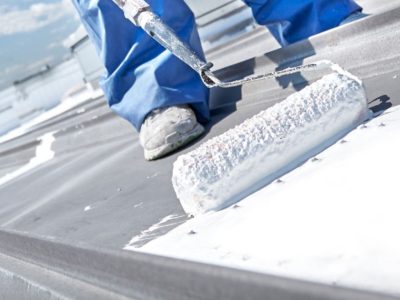
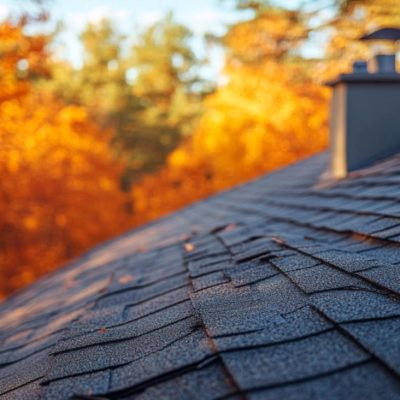
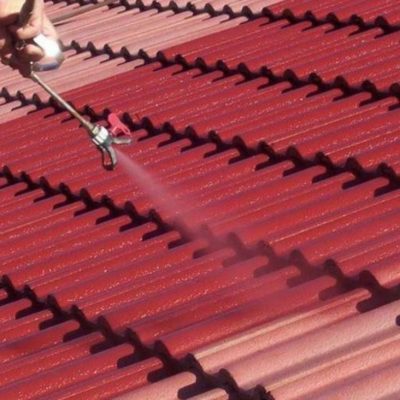
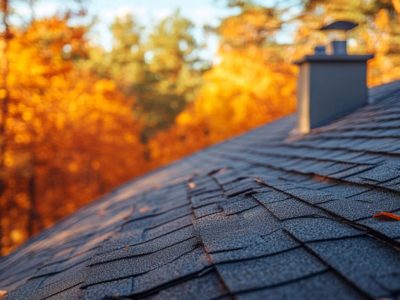
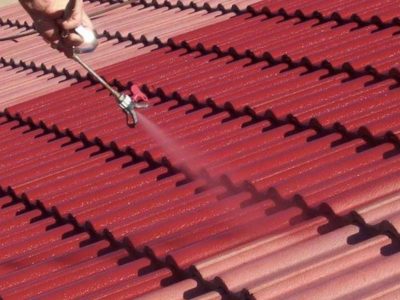

Comments